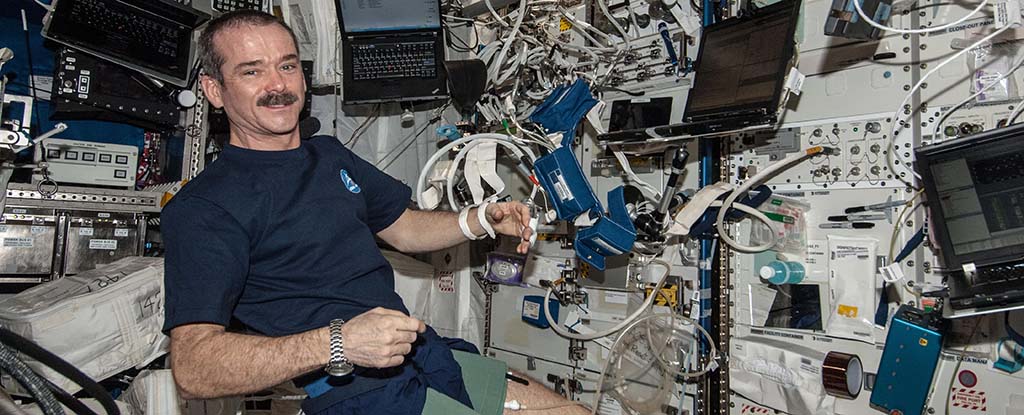Place your adverts here on InfoDig @ low rates; banner ads, sponsored links and guest articles etc. Contact us
 Prof. Emmanuel Kwon-Ndung.
Prof. Emmanuel Kwon-Ndung.The public debate over genetically modified organisms (GMOs) in Nigeria continues to intensify, with a mix of opinions influencing the discourse. This rejoinder responds to an article published in The Guardian on August 31, 2024, by Gbenga Akinfenwa, which raised concerns about GMOs, warning that Nigeria may be “ignorantly treading the dangerous path of food colonisation.”
While concerns over GMOs are valid and deserve attention, it is important to approach the issue based on scientific evidence rather than misinformation or fear.
The Nigerian Biosafety Management Agency (NBMA) follows internationally recognized biosafety protocols, including the Cartagena Protocol on Biosafety, to ensure that genetically modified crops undergo rigorous safety assessments before approval. This process ensures that GMOs introduced into the country are safe for consumption and the environment.
Genetic modification is not inherently harmful. In nature, genetic modification occurs through processes like mutation, natural selection, and gene transfer. For example, mutations—random changes in an organism’s DNA—can lead to new traits that improve survival. Similarly, genes can be transferred between species, as seen in bacteria that exchange genes, leading to traits like antibiotic resistance.
Human-directed genetic modification, as seen in GMOs, follows the same principles but is more precise. Instead of waiting for random mutations, scientists can directly modify specific genes to achieve desired traits, such as pest resistance or improved nutrition. This is what modern biotechnology offers, and it can help address critical agricultural challenges like food insecurity, pest control and climate change.
The notion that GMOs could lead to “food colonization” stems from misconceptions about corporate control and seed patents. While some GM seeds are patented, this is no different from patented technologies in other sectors. Moreover, not all GM seeds are controlled by multinational corporations. In Nigeria, local research institutes and universities, such as the National Biotechnology Research and Development Agency (NBRDA), are involved in developing GM crops tailored to Nigeria’s specific agricultural needs. This strengthens food security rather than undermining it.
The article’s concerns about GMOs being a form of neocolonialism overlook the active role of Nigerian scientists and regulatory bodies in the development and management of these crops. Nigerian researchers are leading the adoption of GMOs, ensuring that the country’s food systems remain under local control. The focus should be on ensuring that Nigerian farmers benefit from biotechnology, not on fears of foreign exploitation.
GMOs are among the most regulated products globally. Before any GM product is approved for consumption in Nigeria, it undergoes a detailed risk assessment process, evaluated by experts in public health, molecular biology, ecology and toxicology. These evaluations align with international safety standards, including those set by the World Health Organisation (WHO), the Food and Agriculture Organisation (FAO), and the European Food Safety Authority (EFSA). Over 20 years of research have consistently shown that GMOs do not pose greater risks to human health than conventionally bred crops.
The National Biosafety Management Agency (NBMA) ensures that all GM products approved for use in Nigeria meet stringent environmental, health, and safety criteria. Discrediting this process without presenting sufficient evidence undermines public trust in scientific and regulatory authorities.
GMOs offer solutions to Nigeria’s agricultural challenges, such as food security, pest resistance, and climate resilience. For instance, TELA maize is engineered to resist pests and withstand drought, reducing the need for harmful chemical pesticides while increasing crop yields. GMOs can help improve productivity, enhance farmers’ incomes and reduce the environmental impact of agriculture.
With Nigeria’s growing population, the need for increased food production is critical. GMOs can offer high-yield crops that thrive in Nigeria’s changing climate. This reduces reliance on food imports and ensures food availability at affordable prices, addressing the country’s food security challenges.
A common misconception is that GMOs increase pesticide dependence. However, many GM crops are designed to decrease the need for chemical inputs. For example, Bt crops (like Bt maize and Bt cotton) produce a natural insecticide that targets specific pests, reducing the need for harmful, broad-spectrum pesticides. This benefits both the environment and farmers by lowering production costs and improving sustainability.
The debate over labeling GMOs is also important. Transparency in food labeling should be a priority to ensure consumers are informed about what they are eating. However, this concern should not prevent the adoption of beneficial technologies that can help address food security and environmental sustainability.
There is a scientific consensus on the safety of GMOs, supported by reputable global health and science institutions such as the WHO, FAO, and the National Academy of Sciences. These organizations have concluded that GMOs are as safe for human consumption as conventionally bred crops. Decades of research and extensive monitoring have shown no credible evidence linking GMOs to health problems.
Rather than framing GMOs as a threat, stakeholders should focus on evidence-based discussions that promote consumer safety and agricultural advancement. With the proper regulatory framework in place, Nigeria stands to benefit from the scientific and economic potential of GMOs, ensuring that the country remains food secure while meeting the challenges posed by climate change and population growth.
Nigeria has a robust biosafety framework, led by the National Biosafety Management Agency (NBMA), which ensures all genetically modified organisms (GMOs) undergo thorough risk assessments before approval. These assessments evaluate potential environmental impacts, gene flow risks and food safety. This regulatory process protects Nigerians from potential risks while providing farmers with innovative tools to improve yields and resilience.
GMOs offer practical, science-based solutions to Nigeria’s agricultural challenges, enhancing food security and sovereignty. Rather than promoting “food colonisation,” they empower farmers by offering higher yields and greater resilience. Public concerns about GMOs often stem from misinformation, which needs to be addressed. Contrary to claims that citizens are treated like “guinea pigs,” GMOs undergo rigorous safety tests. In Nigeria, the NBMA ensures that GM crops meet strict safety standards by assessing allergenicity, toxicity and environmental impacts. Furthermore, the belief that GMOs promote dangerous chemical use is inaccurate. Many GM crops, such as Bt cotton and Bt cowpea, are engineered to reduce pesticide use by producing proteins that target specific pests, decreasing the need for chemical insecticides. These Bt proteins, derived from Bacillus thuringiensis, a natural bacterium, are safe for human consumption, as studies have confirmed.
GM crops can also improve nutrition and food security. Crops engineered to resist pests, diseases, and droughts increase yields and reduce losses, helping to address hunger and malnutrition. Furthermore, GMOs are not imposed on farmers. Through public awareness campaigns, farmers choose to adopt GM crops due to the tangible benefits of higher yields, reduced pesticide costs and greater resilience to climate stresses.
The argument that GMOs lead to monoculture is a misconception. Monoculture is a result of certain agricultural practices, not GM technology. GM crops can be grown in diverse farming systems and help protect ecosystems by increasing yields on existing farmland, reducing the need for land expansion.
While labeling GMOs in Nigeria’s informal markets may be challenging, it is not impossible. The government can improve traceability and labeling to allow consumers to make informed choices. However, it is crucial to recognize that GMOs are not inherently riskier than non-GM foods, and labeling should not be based on fear but on consumer preference.
GMOs offer long-term benefits for food security, particularly in regions vulnerable to climate change, such as sub-Saharan Africa. Crops engineered to resist drought, pests and diseases can reduce hunger and improve livelihoods. Rather than dismissing GMOs as “risky technologies,” independent research and development should be supported to ensure responsible use. The concerns about GMOs highlight the need for more public education and transparent communication regarding safety, benefits, and regulatory frameworks.
Nigeria’s decision to approve GMOs demonstrates a commitment to leveraging scientific advancements for food security, economic development, and environmental sustainability. Numerous studies and health organizations, including the World Health Organization (WHO) and the Food and Agriculture Organization (FAO), confirm that GMOs are safe for consumption and do not pose greater risks than their conventional counterparts.
GMOs have the potential to boost agricultural productivity, reduce poverty, and improve the livelihoods of smallholder farmers. They can reduce the need for chemical pesticides, promoting sustainable agricultural practices and reducing environmental pollution. Additionally, biofortified GM crops, such as Vitamin A-enriched Golden Rice and nutritionally enhanced cassava, can help address malnutrition in vulnerable populations.
The misconception that GMOs are linked to increased chemical use is often exaggerated. For instance, some GM crops are designed to resist herbicides, but others, like Bt crops, reduce the need for chemical pesticides. Regulatory frameworks, including the NBMA’s, ensure rigorous safety assessments of GMOs before their release. Allegations that foreign business interests are driving the adoption of GMOs overlook the contributions of Nigerian scientists working under challenging conditions to develop these technologies.
Concerns about patent-locked GM seeds preventing farmers from saving seeds are also misplaced. While the yield of saved seeds may not match that of first-generation seeds, GM seeds, like hybrids, can still be preserved and replanted by farmers.
Legitimate concerns about the environmental and socio-economic impacts of GMOs should be addressed through proper regulation. However, extreme claims, such as those linking GMOs to health risks or depopulation, lack credible scientific evidence. The debate should focus on responsible regulation, ethical use, and addressing genuine concerns, rather than amplifying unsupported fears.
The NBMA ensures the safety of GMOs through strict regulation and public engagement. By embracing biotechnology and sound agricultural practices, Nigeria can enhance food security and sustainability without compromising safety or consumer choice.
Kwon-Ndung, a former president of Genetics Society of Nigeria and a professor of plant genetics and breeding, wrote in from Lafia, Nasarawa State.















 English (US) ·
English (US) ·